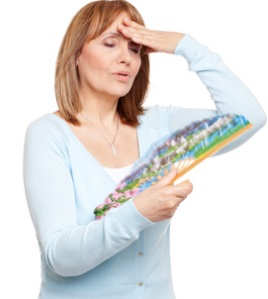Women often wonder if there is a connection between menopause and hives. Women can experience many bothersome symptoms during menopause, including hot flashes, night sweats, mood changes, trouble sleeping, dry skin, thinning hair, weight gain, vaginal dryness, and irregular menstrual periods. It’s natural to wonder if hives are just one more such symptom.
Is There a Connection Between Menopause And Hives?
In some cases, there is. Hormonal changes that occur during menopause, those same changes that cause other symptoms of menopause like hot flashes, can sometimes trigger hives. It’s similar to the way women may experience hives during pregnancy as a result of hormonal changes.

Other issues related to menopause may also increase the likelihood of hives, as well. For instance, increased sweating as a result of hot flashes and night sweats may trigger hives in some women. The physical symptoms of menopause, combined with mood changes and simply adjusting to getting older, may result in increased stress, and stress triggers hives in some people.
Women that are experiencing menopause may also get hives for all the reasons other people sometimes get hives, of course. They may experience allergic reactions to foods, medications, pollen or mold, pet dander, household chemicals, or other substances in the environment. They may get hives as a result of an infection of some kind.
Coping With Menopause And Hives
Menopause can be a stressful time and you don’t need to cope with hives on top of other symptoms like hot flashes and night sweats. Fortunately, there are ways to deal with hives during menopause.
Start by trying to identify the cause of your hives. Hives may be triggered by menopause but often they are actually triggered by other things. Visit our page about the causes of hives to help you determine what’s causing yours and avoid the triggers if you can.
Of course, some triggers of hives can’t always be avoided (it’s impossible to eliminate all stress from our lives, for instance) and sometimes it’s difficult or impossible to figure out what has triggered them. In those cases, there are ways to deal with the itching and discomfort of hives.
If you’re stuck dealing with a case of hives, you should know that they often go away on their own without any treatment. However, if you’re itchy and uncomfortable, there are things you can do. There are a number of home remedies, like oatmeal baths or baking soda paste, which might give you the relief you need. Visit our page about home remedies for hives to learn more.
If home remedies don’t help, you can try an over-the-counter antihistamine like Benadryl, available at any drugstore, or talk to your doctor about other options. Antihistamines and other medications for hives are usually effective but they do carry a risk of side effects. For that reason, some women prefer to use natural remedies instead to treat hives.
You should definitely see your doctor if you have hives that last for several weeks, that cause you significant discomfort, or that don’t seem to respond to over-the-counter treatments or home remedies. See your doctor if you have hives along with other symptoms of illness or infection, like a fever. If you develop hives and have trouble breathing or swallowing, go to the nearest emergency room or call 911 right away.
Our Preferred Treatment For The Hives Menopause May Trigger
We like OxyHives, a natural homeopathic remedy for hives. It works quickly to relieve the itching and discomfort of hives, whatever is causing them. Since it’s made from natural ingredients, the risk of side effects is minimal. You don’t need a prescription for it, either. To find out more about OxyHives and see if it might be right for you, just follow this link to the OxyHives Website.
